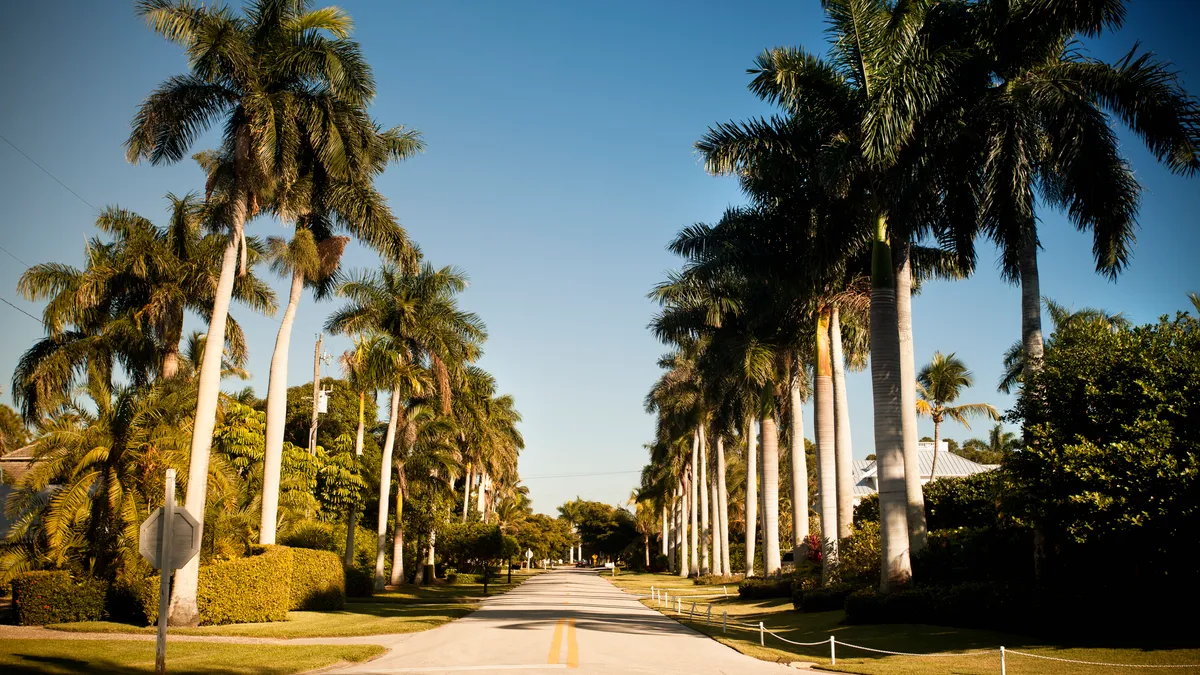Dive Brief:
- Four consumer and climate advocacy groups have asked the Florida Public Service Commission to hold a hearing on modernizing the state’s energy efficiency rules ahead of work that will be done next year to set new utility energy savings targets.
- The PSC approved some changes to the goal setting process in March, but critics of the decision say it was made with little discussion and does not add sufficient transparency to the process.
- It has been about 30 years since the PSC updated its energy efficiency rules, said George Cavros, an energy policy attorney and director with the Southern Alliance for Clean Energy. The groups requesting a hearing want a more “interactive process” to discuss possible updates, he said. “We feel that it will be a process that will better inform the Commission on the range of options they have.”
Dive Insight:
When regulators voted in March to streamline the process of setting utility energy efficiency goals, there was relatively little discussion and they ultimately approved an order that had “pretty much been driven by staff,” Cavros told Utility Dive.
“Commission staff did not incorporate any of the significant recommendations proposed by SACE or any of the other non-utility stakeholders into the proposed rule presented to the commissioners,” the group noted in its request for a hearing.
A hearing would “better inform the commission on the range of options it has to modify the rule in a way that provides more information to the commission in setting cost-effective energy efficiency,” the group said.
The PSC sets utility energy savings goals every five years for a 10-year period. In 2014 the targets were substantially reduced over cost concerns, and in 2019 utilities proposed almost no increases to their savings targets. Those utility proposals will be the subject of next year’s goal setting process, informed by the rules the PSC set in March — which Cavros and others still hope to change.
“It would add a few months to the process for sure, but it's certainly a process where the commissioners could make any number of changes if they want it to,” Cavros said.
The groups say they are entitled to a hearing under Florida’s rulemaking process, which allows affected parties to request a hearing after the PSC adopts a rule. The threshold for affected party is “pretty low,” Cavros said.
The CLEO Institute, a nonprofit focused on climate crisis education, also requested the PSC convene a hearing.
“In the multi-year rule development process in which staff have rejected all proposals from non-utility stakeholders, those stakeholders have had no public interaction with the commissioners, and the commissioners have had no opportunities other than the March 7, 2023, agenda conference to discuss the proposals among one another,” CLEO wrote.
The Florida League of United Latin American Citizens and the Environmental Confederation of Southwest Florida also filed a request for a hearing. They say the primary issues that need to be addressed include an overreliance on the ratepayer impact test, which considers energy efficiency as lost revenue for utilities without valuing savings, and the use of the two-year payback screen “which increasingly is used to screen-out the most cost-effective measures.”
The groups also want to see the commission set specific low-income energy savings targets.
The state’s largest utility says it supports the changes the PSC approved in March.
The updates “provide improvements to the process for establishing goals, programs and plans and thereby allowing utilities like FPL to bring innovative programs to our customers, while continuing to keep rates low,” Florida Power & Light Senior Attorney William Cox told regulators.















